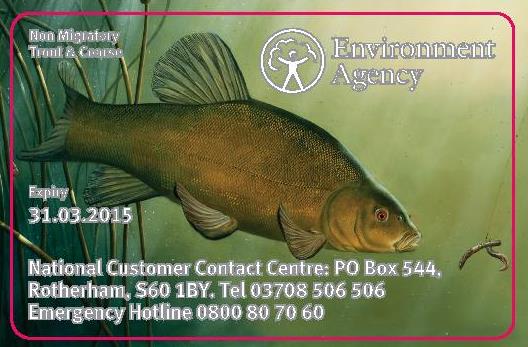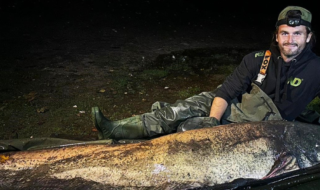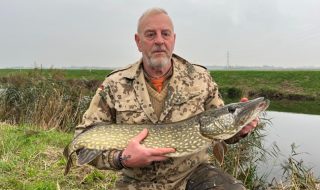The Angling Trust has begun discussions with the Environment Agency on the controversial issue of the coarse angling licence for the use of multiple rods, which has been a longstanding complaint of many carp and specimen anglers who feel aggrieved at having to buy two separate rod licences.
The strength of feeling on this subject has once again been illustrated in the Angling Trust’s current angling survey, which is still open until October 31st, and in regular representations to both the Trust and carp fishing magazines and organisations.
The Trust has been very encouraged by the willingness of Sarah Chare, the new Head of Fisheries at the EA, to consider this and other possible reforms of the rod licence regime. Any changes could not be implemented until April 2016 at the earliest however, because of the constraints of the commercial rod licence contract.
The Angling Trust believes that the current arrangements need to change as they don’t seem fair to carp and other specimen anglers using three rods, but being charged for four. On the other hand any changes must not reduce the funds available to the EA for the restocking of waters, tackling fish health issues and delivering fisheries improvement and habitat restoration works, particularly at a time when the government is cutting grant funding to the Agency.
Other issues under discussion will include the possibility of abolishing the junior licence in order to encourage more youngsters to take up fishing and introducing a 365 day rolling licence rather than the current 31st March end date.
Angling Trust Campaigns Chief Martin Salter said:”Even tench and barbel anglers like myself, who usually fish with either one or two rods at a time, would sometimes like to use a third rod to switch quickly to a new method or to stalk a fish showing in the margins or well away from our baited areas. Whilst many anglers I know won’t buy two separate licences at the moment, they would be happy to pay a fair price to occasionally use a third rod. Personally, I wouldn’t mind paying a bit more for my own licence if it meant that more juniors under 16 could fish for free, because anything that attracts youngsters into our sport has to be good for the future of angling.”
The moves by the Angling Trust and the Environment Agency have been welcomed by leading figures in the carp world.
Simon Crow, editor of Carp-Talk with over twenty years’ experience working in the carp fishing trade, added: “The majority of fisheries up and down the country allow carp anglers to use a maximum of three rods. It therefore seems a waste that we need to buy two two-rod licences to cater for this. It would be so much more user friendly if a single rod licence was introduced to cater for this.”
Mark Lloyd, Chief Executive of the Angling Trust & Fish Legal said :”We welcome the willingness of Sarah Chare to listen to the views of the angling community and to consider carefully taking action to make the licence system fairer for carp and specimen anglers. One of the most important parts of the Angling Trust’s job is to represent the views of anglers to the Environment Agency and government. We need to find a workable way forward that is fairer to carp and specimen anglers without impacting significantly on the funds that pay for the vital work of the Agency’s fisheries department.”
Sarah Chare, Deputy Director of Fisheries, Biodiversity and Geomorphology from the Environment Agency added: “The Environment Agency is starting a review of rod licence arrangements that will not come into effect until April 2016. This review may also affect the cost of rod licences, which have remained at the same level for the last 5 years. As part of this review we are talking with the Angling Trust and other partners to understand the views of the angling groups they represent. Within government rules we will be seeking the fairest deal for anglers that secures the best future for angling through the services the Environment Agency delivers both directly and through the partners we fund.”






